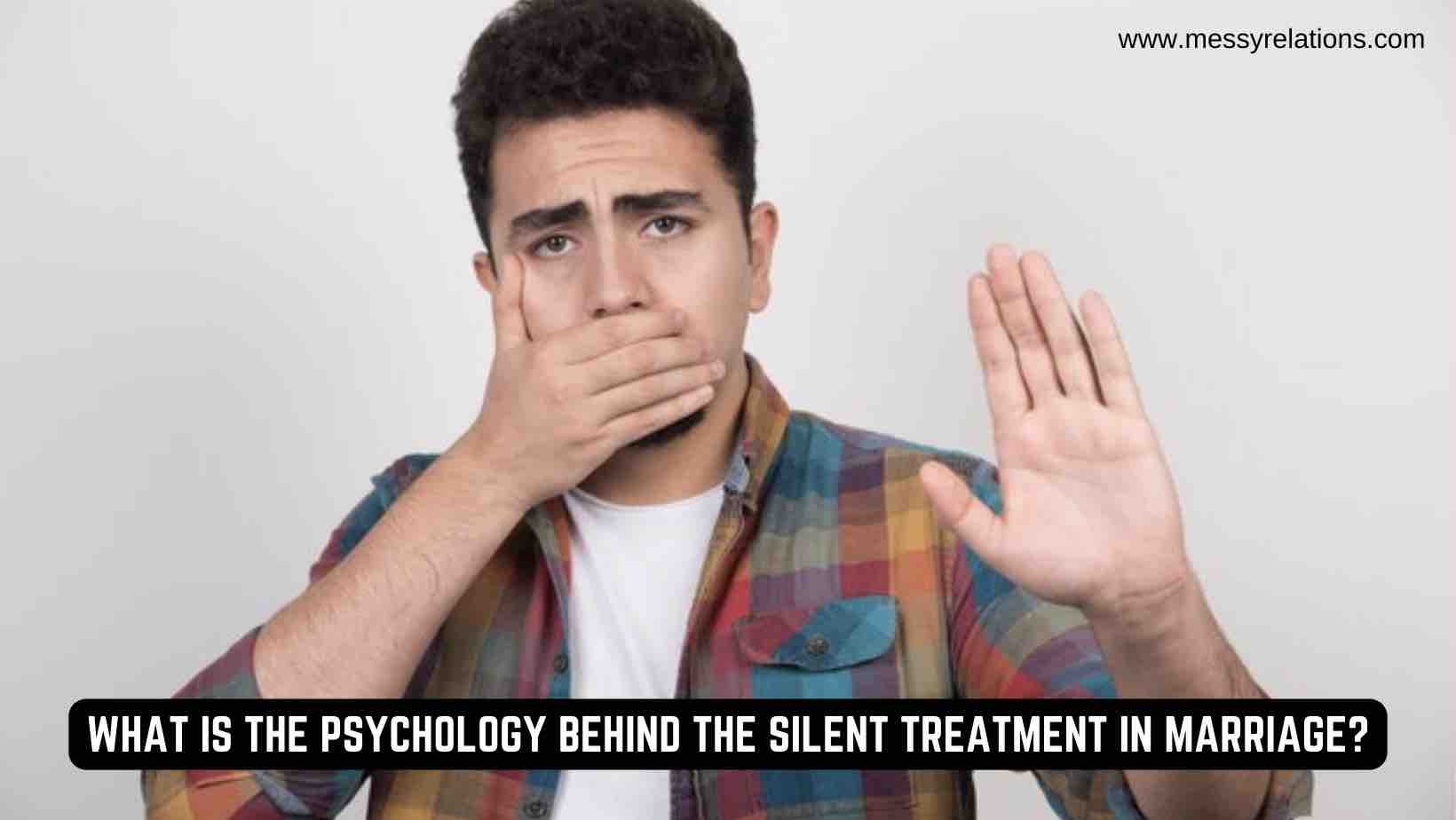Unhealthy relationships can be detrimental to one’s mental, emotional, and even physical well-being. It is crucial to be able to recognize the signs of unhealthy relationships to protect oneself from potential harm. This article will highlight ten key indicators that may suggest you are in an unhealthy relationship.
1. Lack of Communication
In unhealthy relationships, communication often suffers. Partners may avoid discussing important matters, leading to a buildup of resentment and misunderstanding. When partners avoid discussing important matters or struggle to express their feelings, it creates a breeding ground for misunderstandings and resentment. This absence of open dialogue hinders the growth and understanding crucial for a healthy partnership. It leaves individuals feeling unheard and undervalued.
This can create a toxic atmosphere where both individuals feel unheard and undervalued. In contrast, healthy relationships thrive on transparent and honest communication, providing a platform for both partners to express themselves freely and work through challenges together. Healthy relationships thrive on open and honest communication, enabling partners to express themselves freely without fear of judgment.
Addressing communication gaps is vital in rebuilding a strong foundation and fostering a healthier, more fulfilling connection.
2. Control and Manipulation
One of the most evident signs of an unhealthy relationship is a pattern of control and manipulation. This can manifest in various forms, such as constant monitoring of your activities, dictating what you wear or whom you can associate with. Such actions strip individuals of their autonomy and breed a toxic atmosphere of power imbalance. Partners may feel stifled, manipulated, and coerced into compliance. Healthy relationships, in stark contrast, are built on trust and mutual respect, allowing each partner the freedom to make decisions and pursue their own interests.
Healthy relationships are built on trust, respect, and a mutual understanding of each other’s autonomy. Recognizing control and manipulation is crucial in breaking free from a harmful dynamic and seeking support to establish a relationship founded on equality and genuine care.
3. Emotional and Physical Abuse
Unhealthy relationships often involve emotional or physical abuse. This can range from verbal insults and belittling to more severe forms of aggression. Recognizing the signs of abuse is crucial for one’s safety and well-being. Emotional abuse involves consistent belittling, manipulation, or verbal assaults that erode one’s self-worth and confidence. This harm increases when physical abuse is practised in any form. These behaviors create an environment of fear and insecurity, leaving lasting scars on an individual’s mental and physical well-being. The well being of any person can be assured when sign of unhealthy relationship is noticed.
Seeking help from trusted sources, such as friends, family, or professionals, is essential in breaking free from such a destructive cycle and finding the support needed to heal and rebuild a life free from abuse.
Seeking help and support from trusted friends, family, or professionals is essential in these situations.
4. Lack of Trust
Trust is the cornerstone of any healthy relationship. When trust is eroded, it can lead to suspicion, jealousy, and insecurity. In unhealthy relationships, partners may exhibit behaviors like checking each other’s messages or constantly questioning their whereabouts. It manifests as constant suspicion, jealousy, and an overall sense of insecurity. Partners may find it hard to rely on each other, leading to a strained and fragile connection. Trust is the cornerstone of a healthy relationship, and its absence can lead to a breakdown in communication and intimacy. Rebuilding trust requires both partners to be committed to open communication, honesty, and consistent actions that demonstrate reliability. Addressing trust issues is vital in restoring a strong foundation and nurturing a healthier, more fulfilling partnership.
5. Isolation from Support Systems
Unhealthy relationships often involve isolating one partner from their support system. This could mean discouraging contact with friends and family, or creating distance from external sources of advice and comfort. It involves one partner deliberately cutting off the other from friends, family, and external sources of guidance and comfort. This isolation creates a dangerous imbalance of power and control, leaving the isolated individual vulnerable and dependent on the controlling partner. Healthy relationships encourage and celebrate each partner’s connections with others, recognizing the importance of a robust support network. Recognizing this sign is crucial for regaining independence and seeking the help needed to break free from a harmful dynamic and establish a relationship based on mutual respect and genuine care.
Healthy relationships encourage and celebrate each partner’s connections with others, recognizing the importance of a robust support network.
6. Constant Criticism
Criticism is normal in any relationship, but in unhealthy ones, it becomes a pervasive and damaging force. Partners may excessively focus on each other’s flaws, making it difficult to feel appreciated and loved. It involves a pattern of consistently focusing on each other’s flaws and shortcomings, rather than appreciating and supporting one another. Self-esteem gets low with any of such behaviour and the person has to suffer for no fault of theirs.
. Healthy relationships acknowledge imperfections while emphasizing strengths and fostering personal growth. Constructive feedback is balanced with praise and encouragement. Recognizing constant criticism is pivotal for protecting one’s mental and emotional well-being. It prompts the need for open communication and setting boundaries to foster a healthier, more nurturing partnership that uplifts and empowers both individuals.
Healthy relationships acknowledge imperfections while emphasizing each other’s strengths and celebrating individual growth.
7. Unresolved Conflicts
In unhealthy relationships, conflicts tend to go unresolved or escalate into larger issues. Ignoring or dismissing problems can lead to a cycle of resentment and bitterness. Healthy relationships involve constructive conflict resolution, where both partners are willing to listen, compromise, and work towards a solution that benefits both parties.
8. Lack of Personal Growth
A sign of an unhealthy relationship is when one or both partners feel stifled in their personal growth and development. This could be due to a lack of support, encouragement, or even active discouragement from pursuing individual goals and aspirations. Healthy relationships foster an environment where both partners can flourish and achieve their full potential.
9. Imbalance of Power and Decision-Making
Unhealthy relationships often exhibit an imbalance of power, where one partner dominates decision-making and controls the direction of the relationship. This can lead to feelings of helplessness and a loss of agency. In contrast, healthy relationships are characterized by mutual respect and shared decision-making, where both partners have an equal say in matters that affect them.
10. Resistance to Change
In unhealthy relationships, there is often a resistance to change or a reluctance to address issues and adapt to evolving circumstances. This can lead to stagnation and a sense of being stuck in a negative cycle. Healthy relationships are characterized by a willingness to grow, evolve, and adapt together, recognizing that change is an inevitable and healthy part of any partnership.
Recognizing the signs of unhealthy relationships is a crucial step towards creating a safe and nurturing environment for oneself. It is essential to remember that everyone deserves to be in a relationship that is built on respect, trust, and mutual support. If you find yourself in an unhealthy relationship, seeking professional help or confiding in trusted individuals can be the first step towards healing and finding healthier connections in the future.




